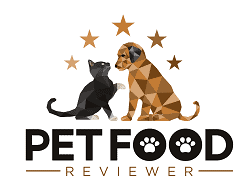Rotisserie Chicken is hugely popular across the United States and other countries thanks to its low cost and high convenience. It is often hard to resist picking one up at Costco while you do your weekly grocery shop.
But while you are carving up your Rotisserie Chicken for you or your family, your canine friend is almost certainly running loops around your legs, hoping to get some for themselves.
But before you start throwing down the leftovers or scraps, there are a few important things to understand about feeding your dog Rotisserie Chicken.
Can Dogs Eat Rotisserie Chicken?
Yes, dogs can safely eat Rotisserie Chicken meat, especially when it is in smaller quantities or on an infrequent basis, such as once per week. Rotisserie Chicken is likely to be extremely appealing to most dogs, and few will turn it down.
However, dogs can not safely eat a Rotisserie Chicken carcass after the meat has been removed.
That being said, which parts of the Rotisserie Chicken and how you prepare it for your dog are important, and if certain steps are not followed, you are opening up your dog to potential issues.
How To Feed Your Dog Rotisserie Chicken
The most important factor by far when feeding your dog Rotisserie Chicken is to carefully remove any bones before providing them to them.
Cooked bones, such as those found in a Rotisserie Chicken, present a risk to dogs and can splinter into several pieces when chewed.
This can present a very real and dangerous threat to dogs as it can be a choking hazard. Hundred if not thousands of dogs end up in the vet every year after eating cooked chicken bones, and sadly some do not make it.
Due to this, you will want to carefully remove the chicken meat from the bones, such as around the Chicken Thighs.
Some dog owners may also choose to shred the meat up rather than leave it as is to make it easier for their dogs to eat.
Lastly, you may want to limit the amount of Chicken Skin that a dog eats and instead opt to feed them the meat with the skin removed.
This is as Chicken Skin tends to be the most unhealthy part of a Rotisserie Chicken. The skin is where any additional seasoning or salt is applied, and it can also be covered in oils or fats like Butter.
Rotisserie Chicken Nutrition For Dogs
Rotisserie Chicken can be an extremely dense source of nutrition for dogs, most importantly providing animal-based protein and fat.
The protein and fat found in Rotisserie Chicken can help to supplement that which is also provided by your dog’s traditional dog food.
Many lower-cost dry dog food recipes do not contain a high proportion of animal-based protein and fat, so occasional treats like Rotisserie Chicken or other meats can be beneficial.
Chicken also contains several beneficial vitamins and minerals in addition to its protein and fat content. Some of the best-known examples of this include Vitamin B12, Choline, Zinc, Iron, and Copper.
While most of these would be found in your dog’s traditional food, they may not be present in as higher levels as Rotisserie Chicken, and some dogs may benefit.



